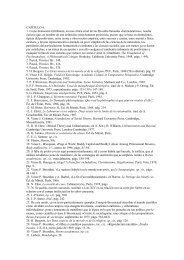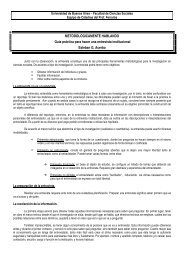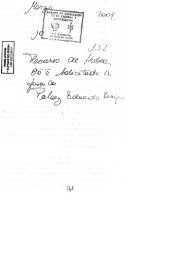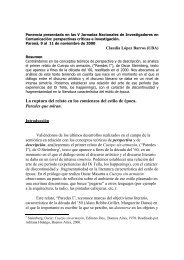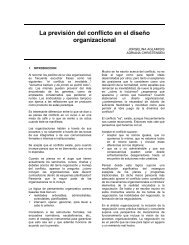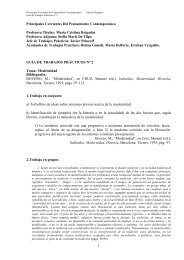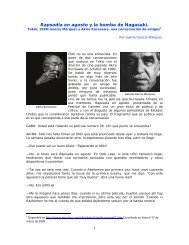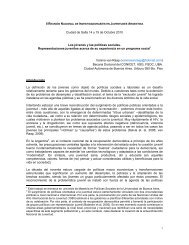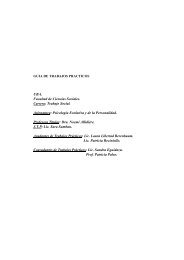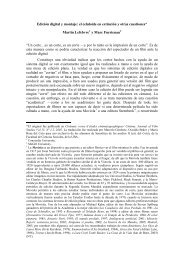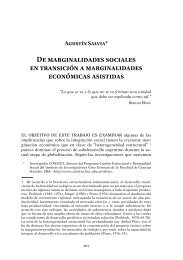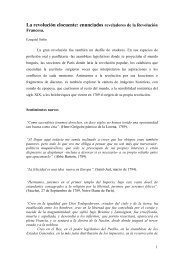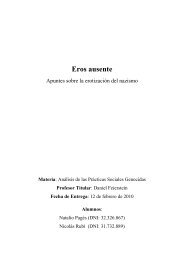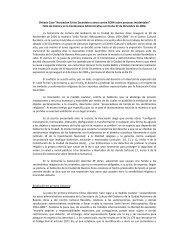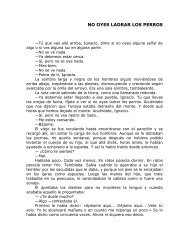Charisma Reconsidered
Charisma Reconsidered
Charisma Reconsidered
You also want an ePaper? Increase the reach of your titles
YUMPU automatically turns print PDFs into web optimized ePapers that Google loves.
ecomes a subject for personal expression rather than a constitutive part of deeply<br />
felt and highly structured worldview.<br />
In this respect our situation is not unlike that of the Polynesians. The<br />
highly structured worldviews of Christian ethics and its intellectual progeny no<br />
longer provide us with the certainties and reassurances that they once did. The<br />
interdicts that have force for us are those that can be understood in the face of the<br />
uncertainties and fears that we face – and we use them experimentally, so to speak,<br />
and by learning from the examples of those whose successes baffle us.<br />
Notes<br />
1. A formulation of the ‘cultural’ meaning of the term is to be found at http://www.nafe.com/<br />
charisma.html, located in the website of the National Association for Female Executives. Here the<br />
term comes simply to mean the appearance of successfulness as conventionally defined,<br />
something that can be imitated and acquired by disciplined effort.<br />
2. Lorraine Daston (2001), writing on the events of 11 September, comments that we were taught<br />
that the concepts of charisma and rationality were ‘immiscible’. But this is true only formally, for,<br />
as Weber says, they are everywhere found intertwined.<br />
3. This process was most advanced in the United States, for simple constitutional reasons: the sheer<br />
number of elective offices was far higher than was the case in other Western countries, with the<br />
consequence that political selection on the basis of personal appeal was relentless and parties<br />
largely powerless. The omnipresence of electoral politics in the United States, however, led to the<br />
paradoxical consequence that it was only by accident that a particular charismatic leader would<br />
make it as far as the presidency. <strong>Charisma</strong>tic appeal, because it typically needed to be tested first<br />
in local or state politics, tended to become limited to particular constituencies. Only in rare<br />
circumstances, such as Clinton, were politicians able to project a new and broader appeal to novel<br />
kinds of constituencies, on a national level. But even Clinton was in his first election unable to<br />
reach a high proportion of the votes and in his second barely achieved a majority.<br />
References<br />
Adams, David (2001) ‘Venezuelan Leader’s Sanity in Question’, St Petersburg<br />
Times, 17 December: 4A.<br />
Beetham, David (1977) ‘From Socialism to Fascism: The Relation between<br />
Theory and Practice in the Work of Robert Michels’, Political Studies 25:<br />
161–81.<br />
Buchanan, James N. (2001) Choice, Contract and Constitutions. Indianapolis:<br />
Liberty Fund.<br />
Conger, Jay (1993) ‘Max Weber’s Conceptualization of <strong>Charisma</strong>tic Authority:<br />
Its Influence on Organizational Research’, The Leadership Quarterly<br />
4(3/4): 277–88.<br />
Daston, Lorraine (2001) ‘11 September: Some LRB Writers Reflect on the<br />
Reasons and Consequences’, London Review of Books 23(19): 21.<br />
TURNER CHARISMA RECONSIDERED 25



